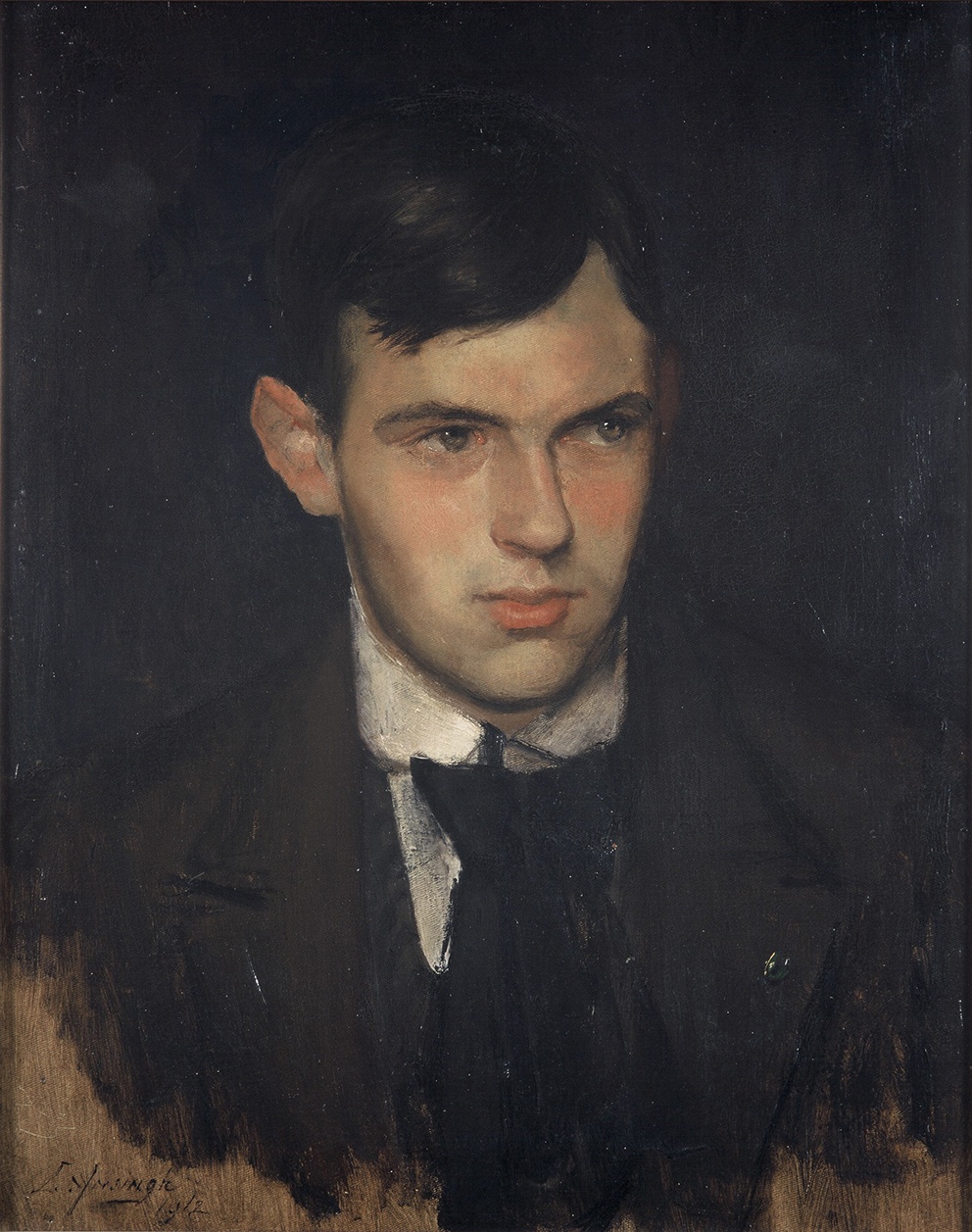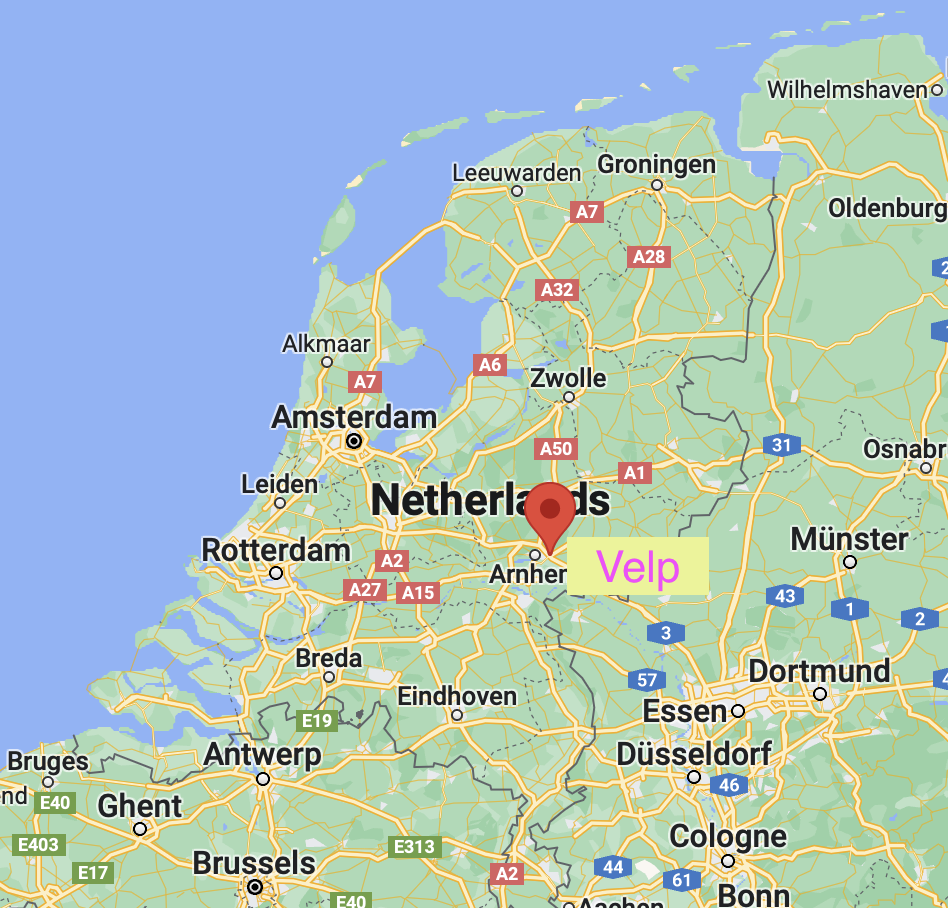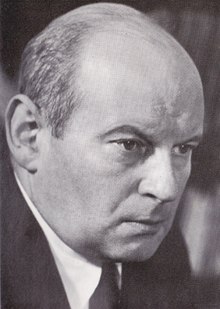Remembering J.W.F. Werumeus Buning

Literatuurmuseum1
Johan Willem Frederik Werumeus Buning was born in Velp, Netherlands on May 4, 1891. The portrait above depicts him in 1912 at around 21 years old, before his literary journey began. The next year he would meet Adriaan Roland Holst, who was known as the "Prince of Dutch Poets" and who encouraged Buning to begin writing poetry.
Buning had studied to become a lawyer and public official but quit to work for De Telegraaf in 1915, where he remained until 1944. In 1921 he debuted a poetry collection entitled In memoriam, which dealt with the death of a lover seven years earlier. He followed up with Some Poems in 1924, Death and Life in 1926, and Heaven and Earth in 1927. Buning also spent a good deal of the 1920s working on translations, including works like Theodore Dreiser's An American Tragedy, published in 1928, and Herman Melville's Moby Dick in 1929.

Google Maps
Arguably his most famous work, Mária Lécina: a song in hundred verses, was written while on voyage aboard the S.S. Amazone following the failure of his marriage to Gerritdiena Johanna Ensink.
During the German occupation of WW2, Buning joined the Nederlandsche Kultuurkamer, an institute established by the Germans and modeled after the Reichskulturkammer. Any artist, architect, writer, journalist, musician, or actor who wanted to work had to be affiliated with the Kultuurkamer. Translated as the Chamber of Culture, the Kultuurkamer promoted nationalism, connection with country and people, historical awareness, banishment of "degenerate, unhealthy, unnatural creativity," and a "positive Germanic attitude."
Applications by Jews or persons married to Jews (defined as having two or more Jewish grandparents) were in principle prohibited, although exemptions were permitted. A person who performed artistic work without an application to the Kultuurkamer risked a fine of up to 5000 gelders.

Wikidata
After the war, Buning experienced a one-year publication ban as a retaliatory measure for having joined the Kultuurkamer. Although he soon returned to work as a journalist at Elseviers Weekblad, his reputation was permanently damaged and his popularity declined. This fate parallels that of fellow writer Knut Hamsun in Norway, who saw his reputation damaged from support of National Socialist politics.
Despite this, he continued his career with translations, including Hemingway's The Old Man and the Sea in 1953, Shakespeare's A Midsummer Night's Dream in 1957 and A Winter's Tale in 1958. He died at 67 years old on November 16, 1958 in Amsterdam.
Below is a poem written by J.W.F. Werumeus Buning and translated by me, Chaz Selph. Dutch and English readings are also provided.
Translator's Note: My wonderful Dutch teacher Cisca Briër taught pronunciation of the digraph 'ij' in pre-1940s style; accordingly I employ this pronunciation in the reading.
Dutch reading
English reading
| Dutch | English |
|---|---|
Een oud vers |
An old verse |
| Wat ik betreur te hebben niet bezeten | What I regret is not having possessed |
| Is het geluk van menig burgerman: | the good fortune of many a commoner: |
| De vrede van het huisgezin, en van | The peace of a family home, and of |
| De kinderen, die mee aan tafel eten. | children who eat alongside me at the table . |
| En ik weet wel, dat in mijn arm gelegen | But I do know, that my darling has lain |
| De liefste is bezwijmd van zaligheid, | in my arm, swooned from bliss, |
| Dat ik de stem ken van de eeuwigheid, | I know of Eternity's voice, |
| En van het hart, dat mijn hart is genegen. | And of the heart, to whom mine is devoted. |
| Maar dit is alles niets, al deze dingen, | But all of this is nothing, all of these things, |
| Gezegend, en te min; 't is eens niet meer; | Blessed, yet not good enough; for they do not last; |
| Men hoort de vogels in de bomen zingen, | One hears the birds singing in the trees, |
| De jaren gaan, de winter keert steeds weer, | Years go by, time after time winter returns, |
| De sterren staan. Ik heb niet goed gekozen. | The stars stand still. I have not chosen well. |
| Wat doet een bedelaar met rode rozen? | What does a beggar do with red roses? |